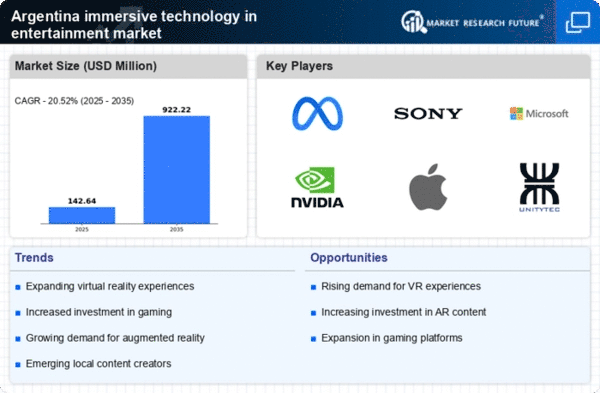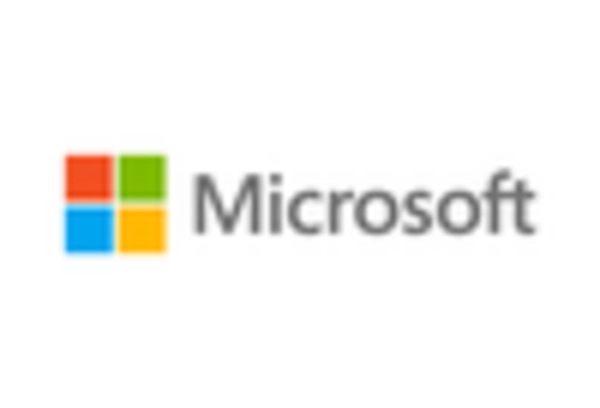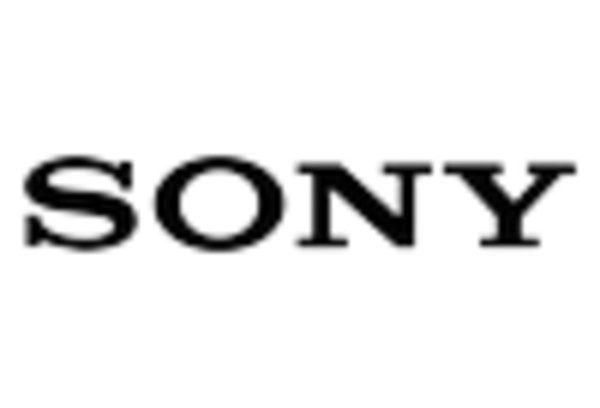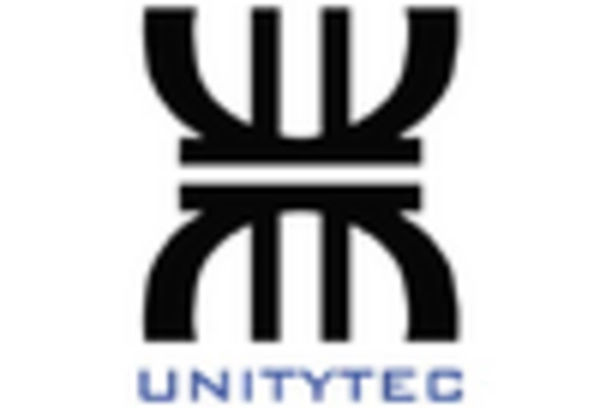The immersive technology-in-entertainment market in Argentina is characterized by a dynamic competitive landscape, driven by rapid technological advancements and increasing consumer demand for immersive experiences. Key players such as Meta Platforms (US), Sony Corporation (JP), and Microsoft Corporation (US) are at the forefront, each adopting distinct strategies to enhance their market presence. Meta Platforms (US) focuses on innovation through its development of the Metaverse, aiming to create interconnected virtual environments that enhance user engagement. Meanwhile, Sony Corporation (JP) leverages its strong foothold in gaming and entertainment, emphasizing partnerships with local developers to tailor content for Argentine audiences. Microsoft Corporation (US) is strategically investing in cloud-based solutions to support immersive experiences, thereby enhancing accessibility and scalability for users across the region.
The business tactics employed by these companies reflect a concerted effort to localize operations and optimize supply chains. The market structure appears moderately fragmented, with several players vying for dominance while also collaborating on various projects. This collective influence of key players fosters a competitive environment where innovation and strategic partnerships are paramount, allowing companies to adapt to local market needs while maintaining global standards.
In October 2025, Meta Platforms (US) announced a partnership with a leading Argentine gaming studio to develop exclusive content for its VR platform. This strategic move is likely to enhance Meta's appeal in the local market, as it aligns with the growing trend of localized content creation, which resonates more deeply with regional consumers. By investing in local talent, Meta not only strengthens its content library but also fosters community engagement, which is crucial for long-term success in immersive technology.
In September 2025, Sony Corporation (JP) launched a new initiative aimed at integrating augmented reality (AR) into its gaming consoles, specifically targeting the Argentine market. This initiative is significant as it reflects Sony's commitment to enhancing user experience through innovative technology. By incorporating AR features, Sony aims to differentiate its offerings in a competitive landscape, potentially attracting a broader audience and increasing market share in the region.
In August 2025, Microsoft Corporation (US) unveiled a new cloud-based platform designed to support immersive experiences across various devices. This platform is expected to facilitate seamless integration of immersive technology into everyday entertainment, thereby expanding Microsoft's reach in Argentina. The strategic importance of this move lies in its potential to democratize access to immersive experiences, making them more widely available to consumers and fostering a culture of innovation within the local entertainment sector.
As of November 2025, current competitive trends in the immersive technology-in-entertainment market are heavily influenced by digitalization, sustainability, and AI integration. Strategic alliances among key players are shaping the landscape, enabling companies to pool resources and expertise to drive innovation. Looking ahead, it is anticipated that competitive differentiation will increasingly pivot from price-based strategies to a focus on technological innovation and supply chain reliability. This shift underscores the importance of adaptability and forward-thinking in a rapidly evolving market.

















Leave a Comment